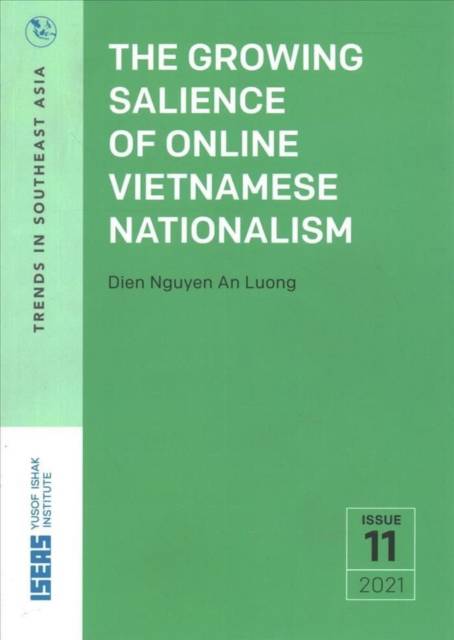
- Afhalen na 1 uur in een winkel met voorraad
- Gratis thuislevering in België vanaf € 30
- Ruim aanbod met 7 miljoen producten
- Afhalen na 1 uur in een winkel met voorraad
- Gratis thuislevering in België vanaf € 30
- Ruim aanbod met 7 miljoen producten
Zoeken
Omschrijving
Vietnamese nationalism has a strong undercurrent of anti-China sentiments, and Vietnam's leaders have regularly tapped into such sentiments to shore up their legitimacy and boost Vietnamese nationalism.
Over the last decade, the helter-skelter growth of social media has bred new popular actors in Vietnamese cybersphere, who are deeply nationalistic but who pursue entirely different political and social agendas. In sum, they give rise to a new nationalistic narrative, one that paints the Vietnam Communist Party as being often too meek and subservient to China, and calls for drastic reforms to the political system--regime change not excluded--to deal with Chinese threats. An examination of prominent cases of online Vietnamese nationalism shows that anti-China sentiments have been a recurrent theme and a consistent trigger. The online nationalistic movements have been mostly instigated by popular figures, with state actors playing a facilitating role in stoking and harnessing them for their own ends. Manifestations of online nationalism, especially those centred on anti-China and sovereignty issues, may hold serious consequences, including violence and deadly riots. In some instances, online nationalistic campaigns both galvanize and dissipate relatively quickly once state and popular actors have somehow managed to achieve their aims. The growing salience of online Vietnamese nationalism has posed serious challenges and dilemmas for the regime. The authorities have had to encourage nationalistic patriotism without letting Sinophobia spiral out of control or turn against the regime.Specificaties
Betrokkenen
- Auteur(s):
- Uitgeverij:
Inhoud
- Aantal bladzijden:
- 52
- Taal:
- Engels
- Reeks:
Eigenschappen
- Productcode (EAN):
- 9789814951890
- Verschijningsdatum:
- 30/06/2021
- Uitvoering:
- Paperback
- Formaat:
- Trade paperback (VS)
- Afmetingen:
- 146 mm x 222 mm
- Gewicht:
- 100 g

Alleen bij Standaard Boekhandel
+ 19 punten op je klantenkaart van Standaard Boekhandel
Beoordelingen
We publiceren alleen reviews die voldoen aan de voorwaarden voor reviews. Bekijk onze voorwaarden voor reviews.











